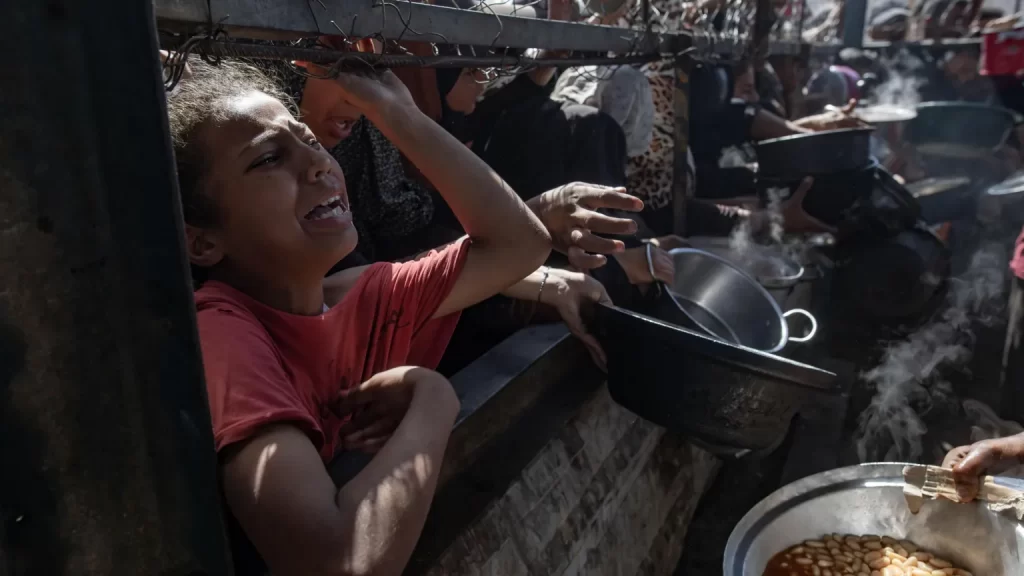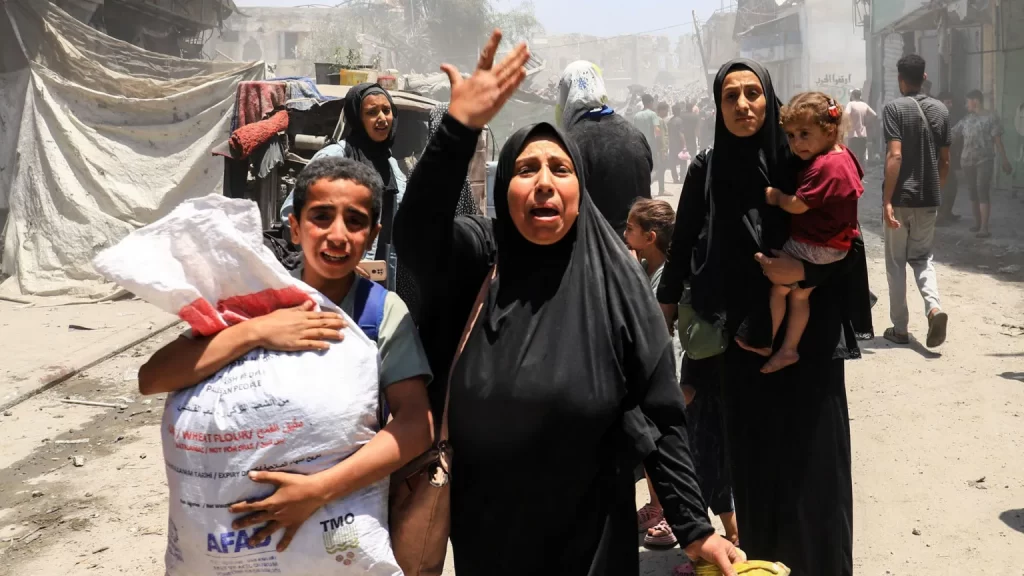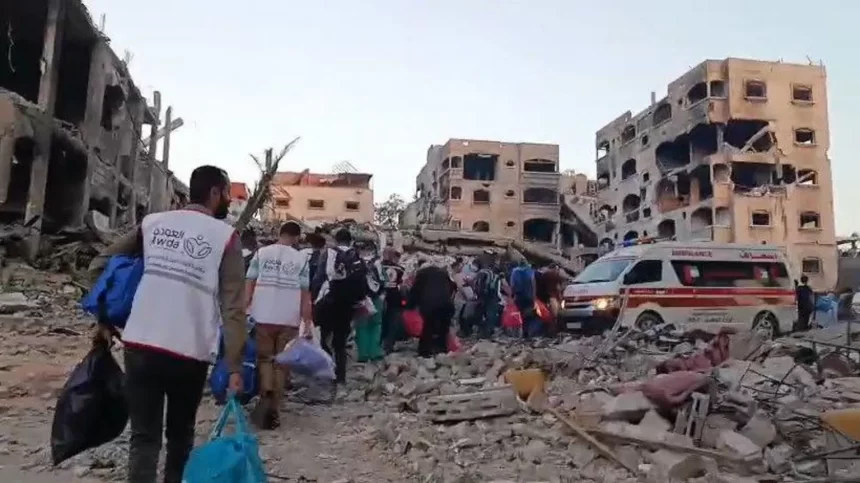The last operational hospital in northern Gaza has ceased all services following a forced evacuation ordered by the Israeli military, deepening an already catastrophic health crisis in the embattled region.
Dr. Mohammed Salha, the director of al-Awda Hospital in Jabalia, confirmed on Thursday evening that the hospital was evacuated after enduring what he described as a two-week siege by Israeli forces. According to him, the facility had faced ongoing bombardment and sniper fire before receiving a direct ultimatum to vacate or face a deadly military incursion.
“We were left with no choice,” Dr. Salha said in a voice message shared with international media. “Israeli occupation forces threatened to storm the hospital and kill everyone inside or bomb the building if we did not comply.” Weighing the lives of the remaining patients and staff, the medical team began evacuating the hospital by nightfall.
The process was harrowing. Medical personnel carried patients by hand more than 300 meters to reach ambulances parked outside the destroyed roads surrounding the facility. Footage from hospital staff shows the scene: wounded individuals, many still in hospital gowns, being loaded into ambulances and trucks under fading daylight.
The World Health Organization (WHO) confirmed that due to the decimated infrastructure, essential medical equipment could not be moved, resulting in the loss of vital supplies. The WHO’s Director-General, Dr. Tedros Adhanom Ghebreyesus, called the shutdown a catastrophic blow to Gaza’s healthcare network. “With al-Awda now out of service, there are no remaining functioning hospitals in North Gaza,” he warned.
Humanitarian agencies on the ground are describing the situation as dire and deteriorating. The UN Office for the Coordination of Humanitarian Affairs (OCHA) noted that al-Awda had been under sustained assault, with attacks damaging the emergency department, water desalination plant, and medical storage units. At least four medical workers were reportedly injured in the bombings.
The hospital had already endured three previous sieges since October 2023 and had remained operational even after its zone was declared an evacuation area. However, Thursday’s events marked the final chapter in its resistance. A joint statement from 18 humanitarian organizations described the hospital as having been struck at least 28 times over the last eight months.
Israel has not publicly commented on the specific evacuation order. However, Israeli Defense Forces (IDF) spokesperson Avichay Adraee previously announced expanded military activity in key districts of northern Gaza, warning that these regions would be treated as active combat zones due to alleged terrorist operations.

In response to the events, the WHO issued a plea for the protection of healthcare workers and facilities, emphasizing that medical institutions should never become targets in conflict. “Hospitals must never be militarized or attacked,” Dr. Tedros stated.
Patients from al-Awda have since been relocated to al-Shifa Hospital in Gaza City. Dr. Salha noted that healthcare workers would attempt to provide emergency services through a limited primary care center and possibly establish a secondary site within a shelter.
According to OCHA, only 61 of Gaza’s 158 primary healthcare facilities remain partially or fully operational, and just 9 of 27 UN health centers are still functioning. It is unclear how many of these centers are still serving the northern population, which now finds itself entirely without a hospital.
Meanwhile, the broader humanitarian situation in Gaza continues to deteriorate. The region has faced intensified airstrikes in recent days, with at least 72 Palestinians killed over the past 24 hours, according to local health authorities. The renewed bombardment comes after a two-month ceasefire earlier in the year and amid increasing international criticism of Israel’s military strategy.

The limited reopening of aid routes last week brought some relief, but distribution remains chaotic and deeply politicized. Aid centers operated by the Gaza Humanitarian Foundation (GHF)—a group reportedly backed by U.S. and Israeli stakeholders—have drawn condemnation from major NGOs and UN agencies for operating outside international humanitarian protocols. Médecins Sans Frontières (Doctors Without Borders) criticized the GHF’s approach as “ineffective” and accused it of failing to reach the most vulnerable.
The UN has warned of an impending famine, stating that all 2.1 million residents in Gaza face “critical risk.” Humanitarian chief Tom Fletcher described the blockade and selective aid flow as a form of “forced starvation,” a charge Israel has rejected.
Israeli authorities maintain that the blockade, which halted food, fuel, and medicine for nearly three months, is necessary to pressure Hamas into releasing hostages still held since the October 2023 attacks. At least 20 hostages are believed to be alive. Some Israeli protesters have even demanded that aid shipments be halted until the hostages are returned.
The Israeli foreign ministry pushed back against mounting international pressure, particularly criticism from French President Emmanuel Macron, who warned of “hardening our collective stance” if humanitarian access isn’t improved immediately. In response, Israeli officials denied the existence of a blockade and accused Macron of bias.
As of now, diplomatic efforts to secure another ceasefire remain stalled. Hamas has yet to formally accept the latest U.S.-brokered truce proposal, which it claims does not meet its core demands. Negotiations are ongoing, but progress remains elusive.
The humanitarian toll of the conflict continues to climb. Gaza’s health ministry reports that at least 54,321 people have died since the start of hostilities, including more than 4,000 since the resumption of Israel’s military operations in mid-March. The shutdown of al-Awda Hospital has now added another layer of vulnerability to an already devastated civilian population, with no functioning hospitals left to treat the sick and wounded in the north.





